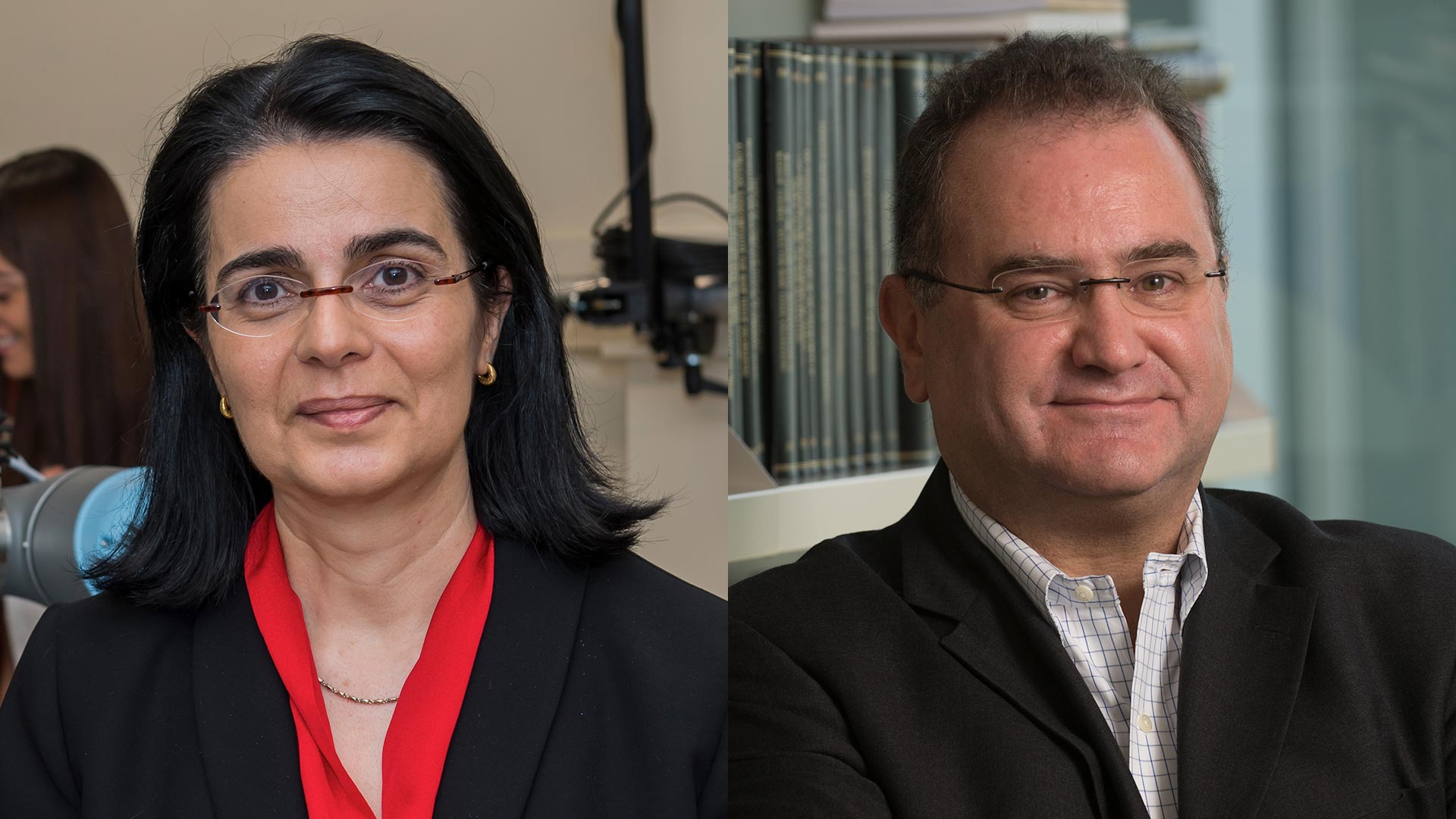Rice computer scientist Lydia Kavraki and bioengineer Antonios Mikos have been elected to the prestigious Academia Europaea for their “sustained academic excellence.”
Kavraki was recognized for her accomplishments in robotics, artificial intelligence and computational biomedicine, and Mikos for his work in biomaterials and tissue engineering. Both are natives of Greece. Kavraki joined the Rice faculty in 1997, Mikos in 1992.
Kavraki is the Noah Harding Professor of Computer Science and professor of bioengineering, of electrical and computer engineering, and of mechanical engineering. She has published some 240 peer-reviewed articles which have been cited more than 29,200 times.
Among them is a highly cited 1996 paper that was the first to establish a probabilistic approach to developing road maps for high-dimensional spaces, which has become one of the key techniques for motion planning for complex physical systems.
Kavraki is a member of the National Academy of Medicine, the Academy of Medicine, Engineering, and Science of Texas, the Academy of Athens and the International Academy of Medical and Biological Engineering. She is director of the Ken Kennedy Institute at Rice.
Earlier this year, Kavraki was honored with the Institute of Electrical and Electronics Engineers’ Robotics and Automation Society Pioneer Award for her fundamental contributions to robotics, and the Allen Newell Award from the Association for Computing Machinery and the Association for the Advancement of Artificial Intelligence. In 2020, Kavraki was also recognized as one the of World’s 50 most Renowned Women in Robotics by Analytics Insight and received the Outstanding Faculty Research Award from the Brown School of Engineering at Rice.
Mikos is the Louis Calder Professor of Bioengineering, of chemical and biomolecular engineering, of materials science and nanoengineering, and of chemistry, and director of the National Institutes of Health Center for Engineering Complex Tissues, the Center for Excellence in Tissue Engineering and the J. W. Cox Laboratory for Biomedical Engineering at Rice.
His 640 publications have been cited some 83,300 times and he holds 32 patents. His research focuses on the synthesis, processing, and evaluation of new biomaterials for use as scaffolds for tissue engineering, as carriers for controlled drug delivery, as non-viral vectors for gene therapy, and as platforms for disease modeling.
Mikos is a member of the National Academy of Engineering, the National Academy of Medicine, the National Academy of Inventors, the International Academy of Medical and Biological Engineering, the Academy of Medicine, Engineering and Science of Texas and the Academy of Athens. He was awarded the 2019 Acta Biomaterialia Gold Medal and the 2020 Founders Award of the Controlled Release Society.
Moshe Vardi, University Professor and Karen Ostrum George Distinguished Service Professor in Computational Engineering at Rice, was elected to the Academia Europaea in 2007.
The Academia Europaea is a nongovernmental association with some 4,000 members from 35 countries, founded in 1988. Members are drawn from the physical sciences and technology, biological sciences and medicine, mathematics, the letters and humanities, social and cognitive sciences, economics and law.
The formal induction ceremony has been postponed because of the COVID-19 pandemic, but has been rescheduled for Oct. 19-21, 2021 in Barcelona.

